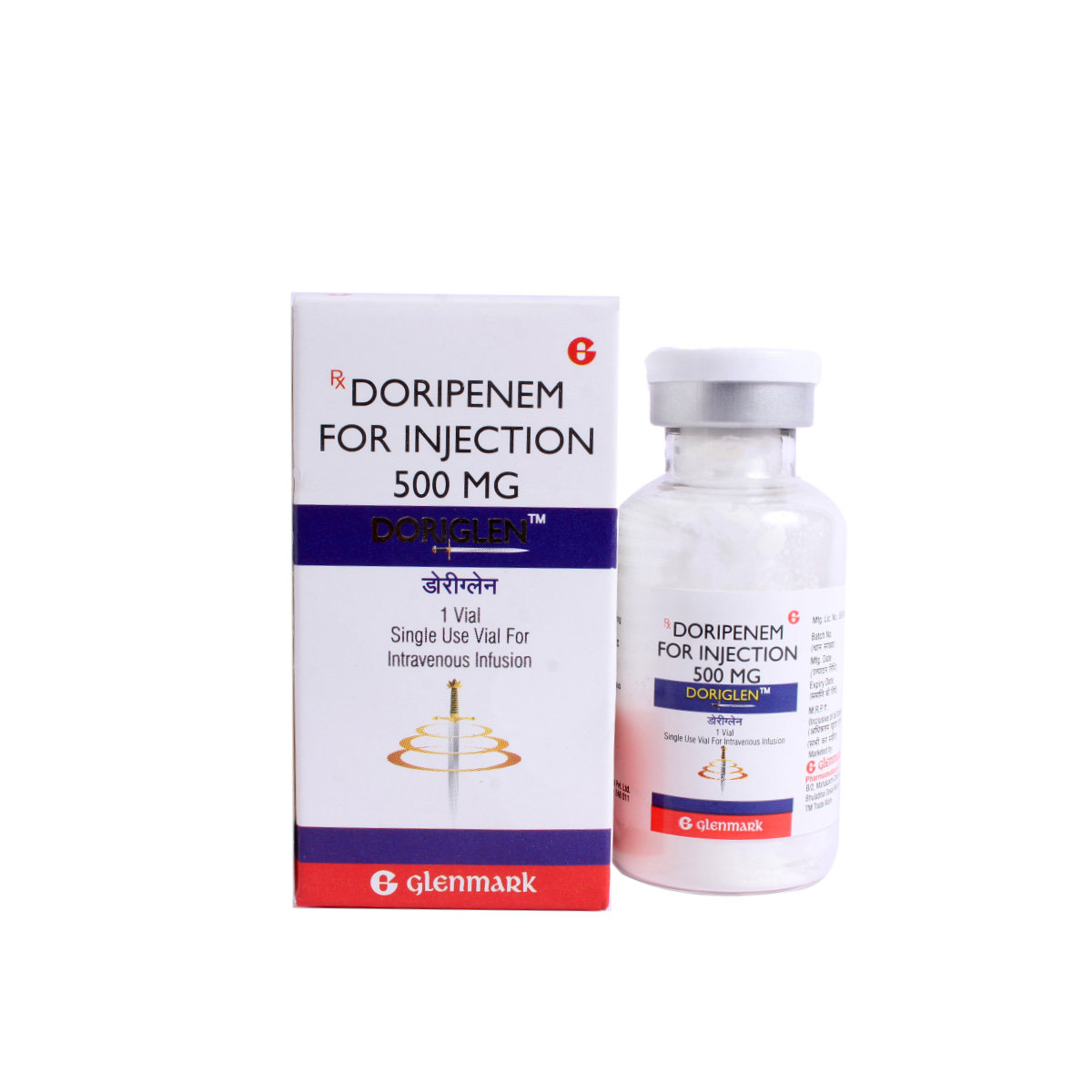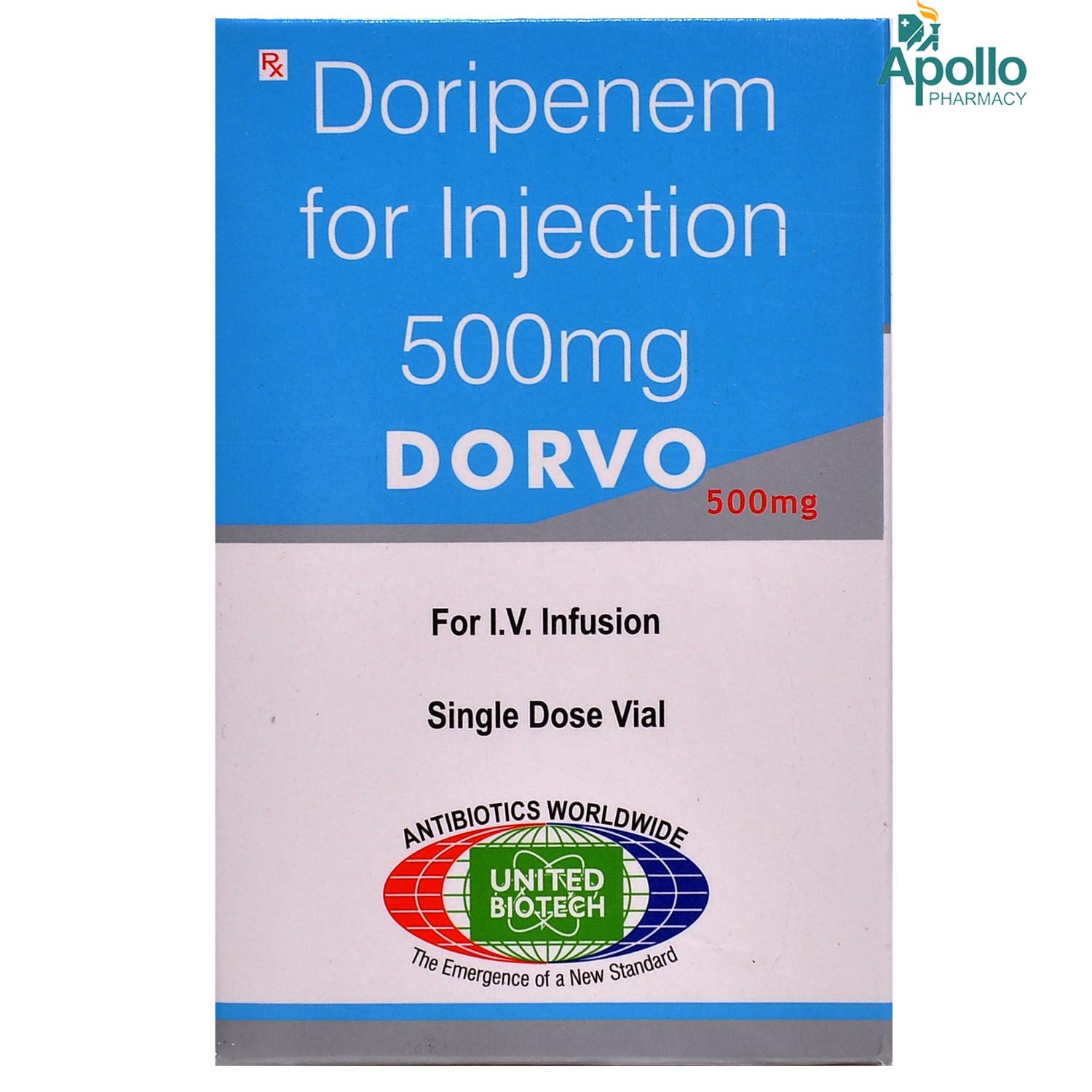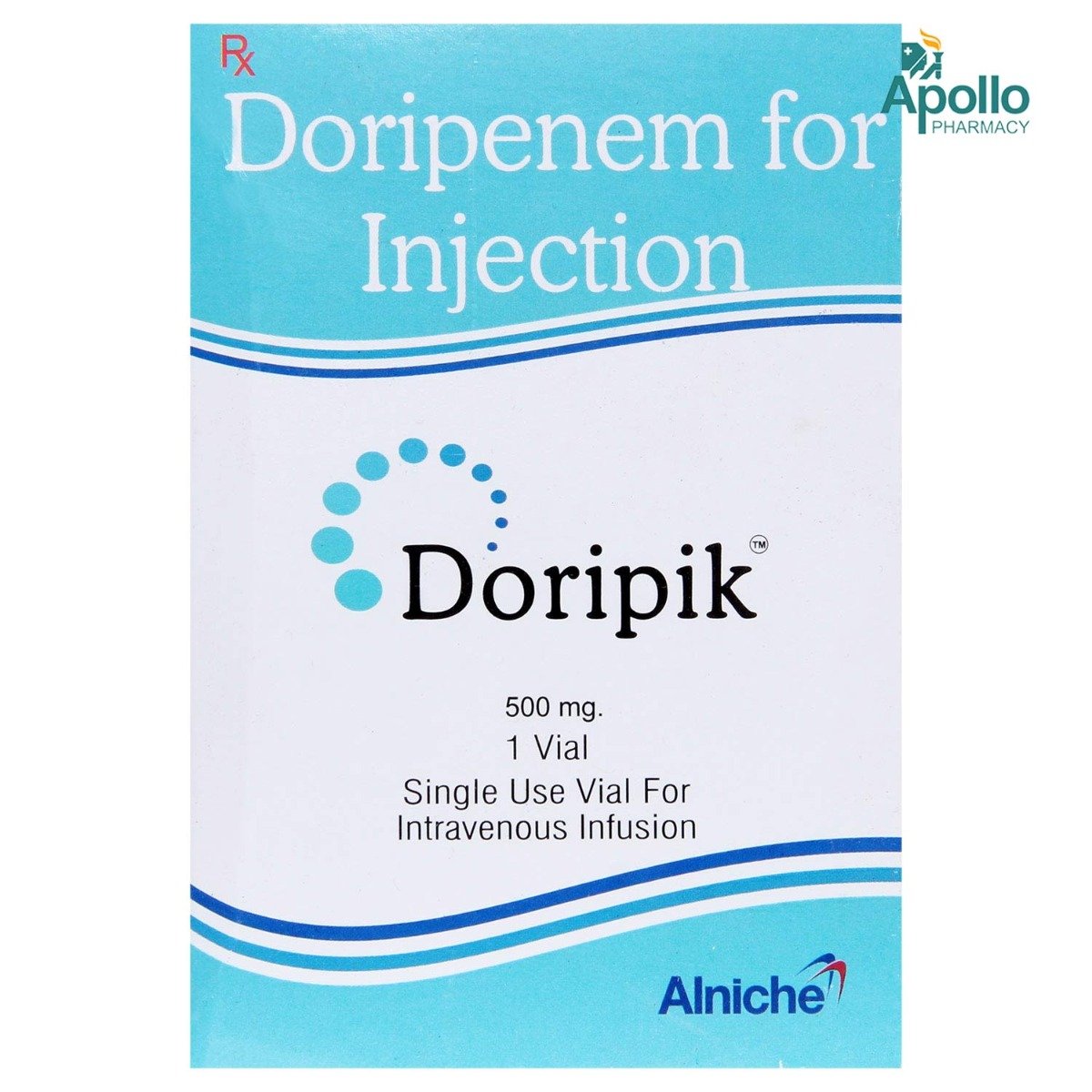Doripenem
About Doripenem
Doripenem belongs to the group of antibiotic medicines called carbapenems. It is indicated in treating bacterial infections such as complicated intra-abdominal infections and complicated urinary tract infections (including pyelonephritis). Bacterial infections are illnesses or conditions caused by bacterial growth or toxins (poisons).
Doripenem contains doripenem. Doripenem is an antibacterial drug. It works by inhibiting bacterial enzymes called penicillin-binding proteins (PBPs) and shows a bactericidal effect. Thus, Doripenem treats bacterial infections.
Doripenem will be administered by a healthcare professional; do not self-administer. Sometimes, Doripenem may cause injection site reactions, headaches, nausea, diarrhoea, rash, and phlebitis (vein inflammation). Most of these side effects do not require medical attention and gradually resolve over time. However, if the side effects persist, consult your doctor.
Inform your doctor if you are allergic to any component in Doripenem. If you are pregnant or breastfeeding, inform your doctor before taking Doripenem. It is not recommended for use in children below 18 as safety and effectiveness have not been established. Keep your doctor up to date on your medical condition and medications to rule out any potential adverse effects or interactions.
Uses of Doripenem
Medicinal Benefits
Doripenem contains doripenem. Doripenem is an antibacterial drug. It works by killing bacteria. Thus, Doripenem helps treat bacterial infections. It is indicated in treating bacterial infections such as complicated intra-abdominal infections and complicated urinary tract infections (including pyelonephritis).
Directions for Use
Storage
Side Effects of Doripenem
- Redness, pain, or swelling at the injection site
- Headaches
- Nausea
- Diarrhoea
- Rash
- Phlebitis (vein inflammation)
Drug Warnings
Doripenem is contraindicated in patients with known serious hypersensitivity to doripenem, other drugs in the same class, or patients who have demonstrated anaphylactic reactions to beta-lactams. To reduce the development of drug-resistant bacteria and maintain the effectiveness of Doripenem should be used only to treat or prevent infections that are proven or strongly suspected to be caused by bacteria. If symptoms worsen or persist or new symptoms appear, patients should stop using the medicine and consult a doctor. Valproic acid lowers serum valproic acid concentrations. Patients with seizure disorders treated with valproic acid or sodium valproate are at a higher risk of having a seizure.
Drug Interactions
Drug-Drug Interactions: Doripenem may interact with vaccines (BCG vaccine, cholera vaccine live, typhoid vaccine live) and anticonvulsants (valproic acid, divalproex sodium).
Drug-Food Interactions: Avoid the consumption of alcohol or alcoholic beverages.
Drug-Disease Interactions: Inform your doctor if you have colitis (inflammation in the colon's lining), renal dysfunction, CNS disorders (Seizures) and hemodialysis (dialysis).
Drug-Drug Interactions Checker List:
Safety Advice

Alcohol
cautionConsuming alcohol with Doripenem is not advisable as it may cause unpleasant side effects.

Pregnancy
consult your doctorPlease visit your doctor. There are no adequate and well-controlled studies in pregnant women. Your doctor will only provide a prescription if the benefits outweigh the risks.

Breast Feeding
consult your doctorConsult your doctor; there has been no significant research on the use of Doripenem in breastfeeding women.

Driving
cautionIt is unclear whether Doripenem affects driving abilities, so don't drive or operate machinery if you're having trouble concentrating or reacting.

Liver
cautionLimited information was available about using Doripenem in patients with liver disease. Inform your doctor before receiving Doripenem if you have a history of liver diseases/conditions. Your doctor will prescribe only if the benefits outweigh the risks.

Kidney
cautionInform your doctor before receiving Doripenem if you have had a kidney impairment/disorder history. Your doctor may adjust the dose or prescribe a suitable alternative based on your condition.

Children
safe if prescribedIt is not recommended for use in children below 18 years.
Habit Forming
Diet & Lifestyle Advise
- It would be best to take probiotics after taking the full course of Doripenem to restore some healthy bacteria in the intestine that may have been killed. Taking probiotics after antibiotic treatment can reduce the risk of antibiotic-associated diarrhoea. Certain fermented foods like yoghurt, cheese, sauerkraut and kimchi can help restore the intestine's good bacteria.
- Include more fibre-enriched food in your diet, as it can be easily digested by gut bacteria, which helps stimulate their growth. Thus fibre foods may help restore healthy gut bacteria after taking a course of antibiotics. Whole grains, like whole-grain bread and brown rice, should be included in your diet.
- Avoid taking too many calcium-enriched foods and drinks as it might affect the working of Doripenem.
- Avoid intake of alcoholic beverages with Doripenem as it can make you dehydrated and affect your sleep. This can make it harder for your body to aid the Doripenem in fighting off infections.
Patients Concern
Disease/Condition Glossary
Bacterial infections: A bacterial infection is a condition in which harmful bacteria enter, multiply, and infect the body. Infectious or harmful bacteria can make you sick and reproduce quickly in the body. These harmful bacteria produce toxins, damaging tissue and making you sick. It can target any body part and multiply very quickly. When infected with bacteria, you can experience generalized symptoms like fever, chills, and fatigue. Anyone can become infected with a bacterial infection. But, people with weak immune systems or taking immunosuppressive medicine are more prone to bacterial infection.
Pyelonephritis: Pyelonephritis is caused by an ascending urinary tract infection that travels from the bladder to the kidneys. Fever, flank discomfort, nausea, vomiting, burning with urine, increased frequency, and urgency are common symptoms.
FAQs
Doripenem contains doripenem. Doripenem is an antibacterial drug. It works by killing bacteria. Thus, Doripenem helps treat bacterial infections.
Caution should be exercised. Patients with seizure disorders who are being treated with valproic acid or sodium valproate are at a higher risk of having a seizure. It has been demonstrated that administering Doripenem together with valproic acid lowers its (valproic acid) serum levels.
In some cases, Doripenem may lead to Clostridium difficile-associated diarrhoea (ranging from mild to fatal colitis): in major cases, it gradually resolves over time. In case this condition persists, consult your doctor immediately.
Inform your doctor if you do not feel better even after finishing the full course of treatment. If the symptoms worsen while using this medicine, consult your doctor.
To reduce the development of antibiotic resistance and maintain the effectiveness of Doripenem, it should only be used to treat or prevent infections that are proven or highly suspected to be caused by bacteria.
Usually, Doripenem starts working soon after taking it. However, it may take a few days to kill all the harmful bacteria and make you feel better.






